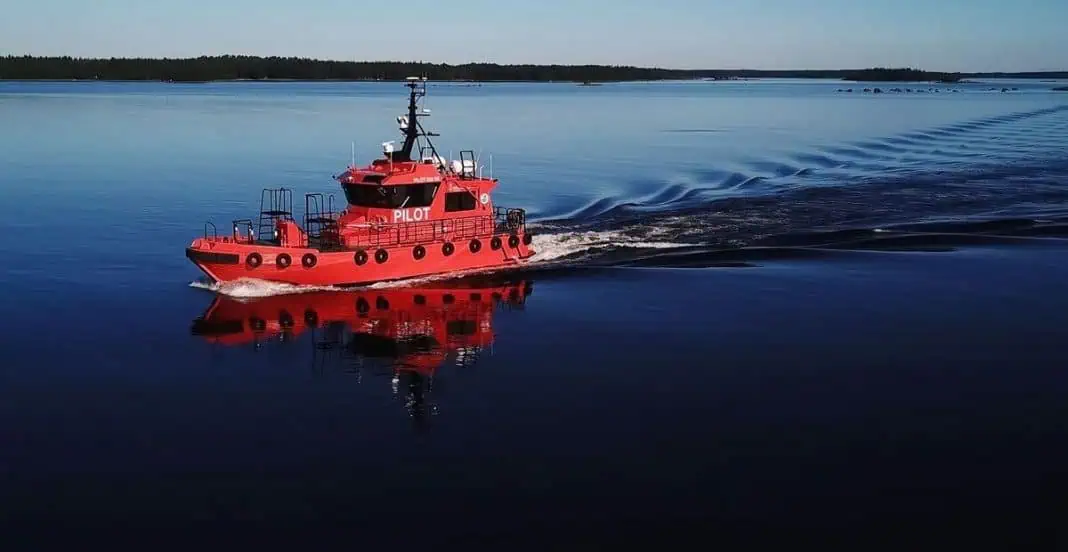Volvo Penta are focused on innovating tomorrow’s premium sustainable marine propulsion solutions, plus we’re equally responsible for advancing today’s best practice. In this case of three pilot boats for the Swedish Maritime Administration, Sjöfartsverket, that best practice was meeting the latest IMO Tier III regulations while delivering on important performance requirements.
The Swedish Maritime Administration, Sjöfartsverket, is the government agency in Sweden which provides services to the transport sector by keeping the sea lanes open and safe. In 2020, the agency commissioned three new pilot vessels to replace retired vessels in its Gothenburg, Marstrand, and Lysekil locations on the country’s west coast. All three vessels are to be delivered this year and will work year-round – with separate annual running times of 3,500 hours in Gothenburg and 1,500 hours in the other two locations.
Twin installation Volvo Penta D16-650 IMO III engines were chosen to power the vessels. This is not the first time Sjöfartsverket has worked with fellow Swedish company Volvo Penta. Almost half of Sjöfartsverket’s vessels are powered by Volvo Penta.
Strict procurement requirements
As a government agency, Sjöfartsverket must follow strict public procurement requirements. These three vessels have a long list of requirements that must be met.
Firstly, each vessel must have a speed capacity of at least 25 knots and be suitably operative in an area up to 15 nm from a safe harbor. The vessels must be large enough to transport up to 10 people: two crew and eight passengers. They must have two drive lines, no diesel generator onboard – 24V DC power only – and be specified for 2000 hours annually, or 25 years of technical working life. Any equipment on board needs to have service intervals greater than 36 months (dry dock requirement).
When it came to the engines, they must be over 16 liters and meet IMO Tier III requirements. The propulsion system itself needs instant access to the torque and quick throttle response – which is an important safety requirement, so it can generate the necessary acceleration to pull away from the suction of a large vessel and its wake.
Successful sea trials
Earlier this year, sea trials were carried out in Finland, where the vessels are being built by boatbuilder Kewatec. The results have been promising with specific acceleration requirements being met – in the lower region between 6-9 knots and 12 knots – a good speed for approaching and moving away from the ship safely.
“From a sustainability point of view,” says Patrik Frick, Ship Management at Sjöfartsverket, “the sea trials have demonstrated that the new D16 IMO III has a fuel saving of around 15 percent at 100 percent load, in conjunction with the Humphree trim system, when compared with six other similar size vessels in our fleet. This result has exceeded our expectations and is a benefit for our operations.”
Jan-Willem Vissers, Director Global Marine Commercial at Volvo Penta, said: “The fuel savings in this application of our D16 IMO III solution demonstrates how – by continually improving the efficiency and performance of every Volvo Penta product – we can keep delivering incremental improvements in sustainability outcomes.”
Jan-Willem continued: “Our primary focus remains on innovating tomorrow’s premium sustainable marine propulsion solutions – plus we are equally responsible for advancing today’s best practice.”
Read more about our Volvo Penta D16 IMO Tier III solutions here.












